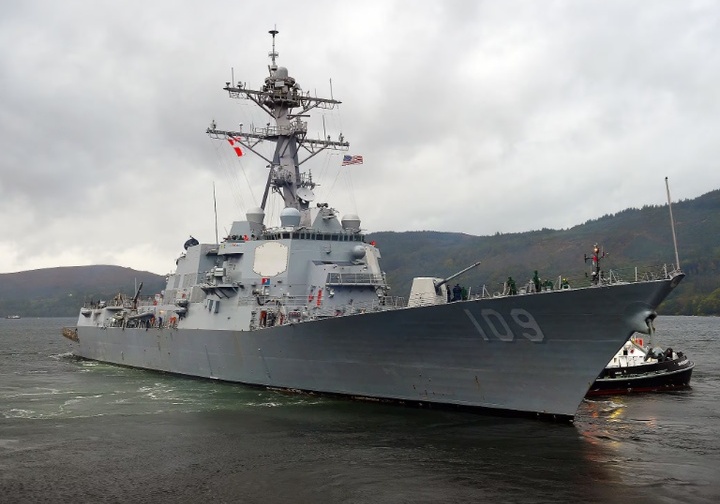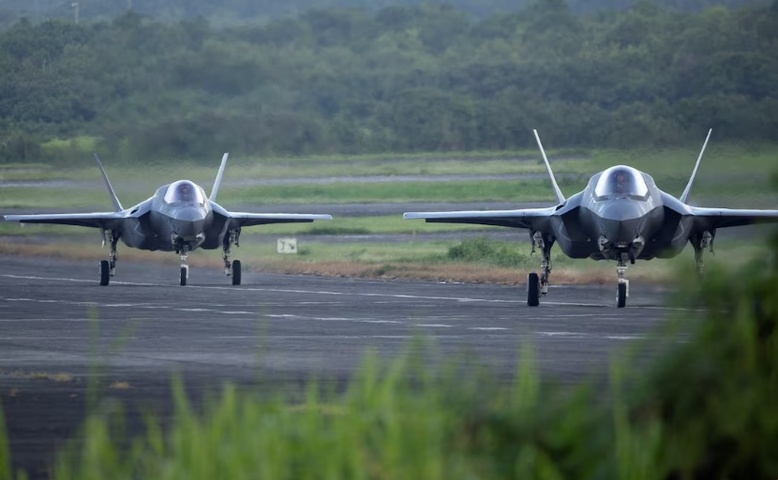SAEDNEWS: Venezuela accused a US destroyer of illegally seizing a fishing vessel in its waters, calling it a “direct provocation” just days after an American strike killed 11 Venezuelans, escalating a crisis that now threatens to spiral into open conflict.

Caracas and Washington are once again locked in a bitter confrontation after Venezuela accused a US Navy destroyer of illegally boarding and occupying a fishing vessel in its exclusive economic zone. The clash, which unfolded just days after a deadly US military strike in the Caribbean, marks one of the sharpest escalations in US–Venezuela tensions in years.
According to Venezuela’s Ministry of Foreign Affairs, the incident occurred Friday when the USS Jason Dunham (DDG-109) intercepted a small fishing boat carrying nine local fishermen. Venezuelan officials said 18 armed US agents stormed the vessel and occupied it for nearly eight hours. Caracas described the move as a “direct provocation” and accused Washington of “illegal use of excessive military force against civilians.”
Images of the modest boat—contrasted with the sleek and heavily armed destroyer—have struck a nerve in Venezuela, fueling public outrage and reinforcing narratives of American aggression in the region.

This latest confrontation comes on the heels of a controversial US strike last week in Caribbean waters that killed 11 Venezuelans. Washington alleged the victims were members of the Tren de Aragua gang and engaged in narcotics trafficking. But Venezuela insists the accusations are fabricated.
“They openly confessed to killing 11 people,” Interior Minister Diosdado Cabello declared on state television. “Our investigations show the victims were not drug traffickers. A murder has been committed against ordinary citizens.”
The White House pushed back, with spokeswoman Anna Kelly calling the dead “evil narcoterrorists” and reiterating Washington’s stance that President Nicolás Maduro is “not the legitimate leader of Venezuela” but rather a “fugitive.”

President Maduro responded with a dramatic show of force, announcing the deployment of soldiers, police, and civilian militias across 284 so-called “battlefronts.” Speaking from Ciudad Caribia, he declared: “We’re ready for an armed fight, if it’s necessary.”
Meanwhile, the United States has been flexing its own military muscle. The Pentagon has dispatched additional warships to the southern Caribbean and deployed ten F-35 fighter jets to Puerto Rico. The buildup underscores just how dangerously close the two countries are to a direct confrontation.

The standoff is playing out against a broader struggle over Maduro’s political legitimacy. While Washington and several Western nations have long claimed his presidency is the result of unfair elections, US intelligence agencies have found no evidence linking his government to organized narcotics networks.
Nonetheless, last month the Trump administration doubled its reward for information leading to Maduro’s arrest—from $25 million to $50 million—alleging drug trafficking and criminal ties. Venezuela rejects the claim, insisting it is not a drug-producing nation.
For Venezuela, the seizure of a civilian fishing boat is not just a legal violation but a symbol of humiliation at sea. For the US, it is a continuation of its campaign to pressure Maduro and delegitimize his government.
Analysts warn that the situation could spiral out of control. With military forces now stationed within close range of one another and political rhetoric hardening on both sides, the risk of miscalculation looms large. The crisis has left observers wondering whether this will remain a war of words—or erupt into a regional confrontation with global consequences.

